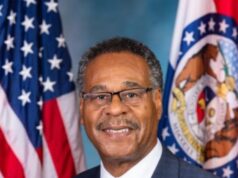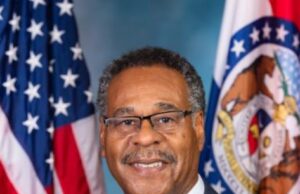Field Hearing Highlights Draconian Rejection of Science, Local Stakeholder Input with National Park Service’s General Management Plan for Biscayne Bay
WASHINGTON, D.C. – August 4, 2015 – (RealEstateRama) — The House Committee on Natural Resources and the House Small Business Committee held a joint field hearing in Homestead, Florida, on the National Park Service’s (NPS) General Management Plan (GMP) for Biscayne National Park released in June 2015. The GMP, which includes a Marine Reserve Zone (MRZ) that would be closed to all commercial and recreational fishing, conflicts with the position of the Florida Fish and Wildlife Conservation Commission (FWC) and the recommendations of the park’s own stakeholder working group.
“Today we heard first-hand accounts from Florida’s Fish and Wildlife Conservation Commission, local fishermen and businesses on the National Park Service’s draconian plan to close a third of the Biscayne National Park’s reefs from fishing,” stated House Committee on Natural Resources Chairman Rob Bishop (UT-R). “The National Park Service set up local management advisory groups on Biscayne National Park – and then ignored the recommendations. The State of Florida’s input on the plan was rebuffed. This is not the way to run a National Park System.”
“I commend my Florida colleagues Rep. Curbelo, Rep. Ros-Lehtinen and Rep. Diaz-Balart for helping to elevate public attention to this matter,” Bishop added. “Together, we will take action to address the abuses of the National Park Service and re-establish public input and access at Biscayne Bay.”
On Thursday, July 30th, Rep. Ros-Lehtinen introduced the Preserving Public Access to Public Waters Act (H.R. 3310), which would ensure that federal and state agencies collaborate in the development of any new fishing access restrictions in areas where state marine waters and national park or national marine sanctuary boundaries overlap. The Committee on Natural Resources will be acting on the legislation.
During the hearing, witnesses discussed the NPS’s disregard for state and public input, lack of transparency, and disregard for the scientific process in developing the GMP, as well as the economic and environmental implications of the final GMP.
Ms. Jessica McCawley, Director, Division of Marine Fisheries Management, Florida Fish and Wildlife Conservation Commission (FWC), stated: “FWC cannot support this plan for many reasons. First, the Park’s refusal to explore alternatives to a no-fishing marine reserve zone early in the GMP planning process ultimately contributed to a failed attempt to find a workable compromise. Second, FWC views the implementation of a no-fishing zone within the marine reserve zone under the GMP as a breach of the partnership agreement established through the MOU. Third, the proposed fishery closure is being based on an inappropriate application of scientific analysis. Fourth, the closure would unnecessarily restrict public access and negatively impact the south Florida economy.”
“The data bases used to begin the development of the GMP more than a decade ago are no longer germane to current stock levels or the condition of sea grasses, corals and other benthic habitat. Park managers find it far too convenient to blame fishing for all of the ills facing the park because it is the easiest to regulate,” stated Mr. Ernie Piton, Florida Keys Commercial Fishermen’s Association. “The development of the GMP is now 14 years old and again, working groups assembled to help in the formulation of the plan have not met for at least 12 years.”
Mr. Carl Liederman, Owner of Miami’s Captain Harry’s Fishing Supply, stated: “While significant in terms of lost public access, closing this area will do nothing biologically to improve the overall fisheries conditions in the park. There is simple no good science to support it, as the FWC can attest here today. And that coupled with the adverse economic impact this closure will bring to many of the marine related small businesses in south Florida makes this closure a very bad idea.”
Click here to view additional information on the hearing.
Contact: Committee Press Office 202-226-9019
















